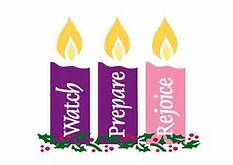Fr. James Conner, OCSO (continued from last week)
Let it enter into the bowels of your soul. Let it pass into your feelings and into your routines…. If you keep God’s word like this, you will surely be kept by him. When we keep the Word of God, God himself dwells in us. To eat the Word of God is first to absorb it into the depths of our own being by obedient and loving faith; then to let the power of the Word (the Holy Spirit) express itself in our works of love and good habits. It is this divine action within us, enlightening us to receive him in his revealed Word, which is the heart of the “sacrament of Advent.” If we fully and actively receive this Word of God into our heart and life, then we have nothing to fear from the third Advent of the Lord. He himself has told us this in Matthew 25:31-40: “Whatever you did to one of the least of my brethren, you did it to me.”
All three Advents are dependent on him who comes: first as a little child and a Man like us in all things but sin; then as the hidden One coming within our hearts but also in every person we encounter and every event of our life; and finally in the glorious Lord, for “God has put all things in subjection under his feet…. And when that subjection is complete, then the Son himself will become subject to the power which made all things his subjects, so that God may be all in all” (1 Corinthians 15:27-28, Knox). Paul tells us that “the whole creation has been groaning as in the pains of childbirth right up to the present time. Not only so, but we ourselves, who have the first fruits of the Spirit, groan inwardly as we wait eagerly for our adoption as sons, the redemption of our bodies. For in this hope we were saved” (Romans 8:22-24, NIV). In this way we see that Advent is much more than simply a preparation for Christmas or even an introduction to the liturgical year. The mystery of Advent is the mystery of God coming to us at every moment. As the poet Rabindranath Tagore (1861-1941) says: “He comes, comes, ever comes.” Our God comes to us to claim us as his own in order that we might fully share in his own divine life, and in this way to realize the purpose of our creation.
-Fr. James Conner, OCSO

 RSS Feed
RSS Feed